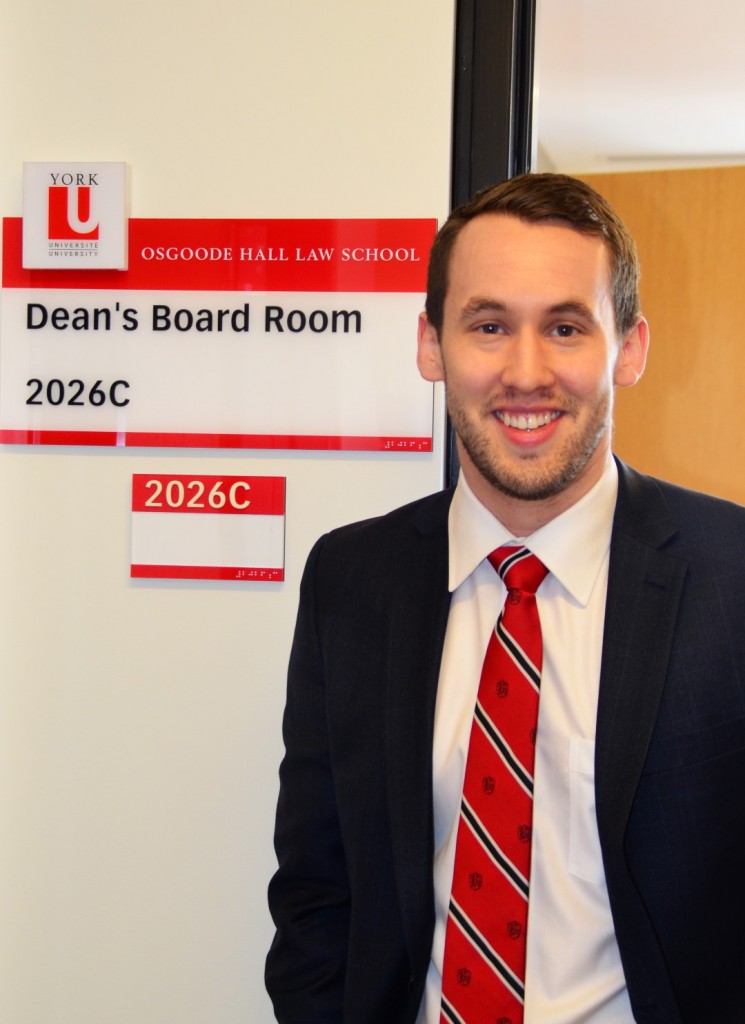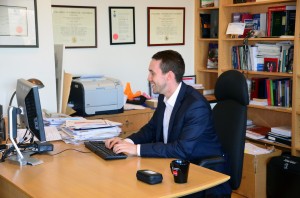Editorial Note: Second-year JD student Ryan Robski was chosen as this year’s Dean for a Day. He was supposed to have moved into the Dean’s Office on 5 March. In light of the labour disruption, however, Ryan and Dean Lorne Sossin decided to forego trading places. Here is Ryan’s award-winning essay submission for the 2015 Dean for a Day contest.

Remember “Big Block of Cheese Day” from everyone’s favourite Aaron Sorkin hit, The West Wing? If not, the idea was simple: to throw open the White House doors for one day per year for ordinary members of the public who wanted to have a conversation with their government. While the gesture may have been largely symbolic (or thematic, in its television portrayal), it serves as an important reminder nonetheless: our greatest public institutions are for the benefit of the many, not the privileged advancement of the few.
Osgoode Hall Law School is one such iconic and storied institution. This year we are celebrating its 125th birthday—and it’s a perfect occasion to reflect upon our fundamental role in shaping not just access to education, but access to the law. My Dean for a Day vision is concerned with instituting a new, “Sorkinesque” tradition of accessibility and community-mindedness—”Open Osgoode.”
Accordingly, I propose that Osgoode open its doors to anyone and everyone who wanted to learn a something about the law, try their hand at a law school lecture, watch oral advocates spar over points of law and policy, or ask questions about the ethical obligations of legal professionals. This would be an opportunity to meet real law students, lawyers, and legal scholars. It would be an opportunity to directly break down barriers to understanding and accessing the law. And it may begin to inspire minds, enrich conversations, and perhaps even alter public perceptions.
How would we accomplish such a feat? By doing what Osgoode is known for—working together as a community and drawing upon the enormous generosity of our students, faculty, staff, alumni, and other members of the legal profession. Student clubs can take the lead by speaking about their journeys to and through legal education. Faculty can speak to the law and its historic evolution. Staff can speak to their longitudinal perceptions of how Osgoode has and continues to change. Lawyers, paralegals, and other legal professionals can speak to the industry and how it strives to remain compassionate yet resilient.
But what about those who may not be able to attend in person? Taking a page from how the current (non-fictional) White House has adapted the concept in recent years, we would simultaneously hold our doors open to the digital world. Through use of Twitter, webcasting, and online forums, we would have a virtual open house to the rest.

Now we may not have our own Charlie Young or C.J. Cregg or Sam Seaborn or Joshua Lyman or Josiah Bartlet to pitch our idea but we do have our own cast of equally dedicated, hard-working, and caring members of the Osgoode family. A cast that I am sure would be eager to help Open Osgoode and make the law more than an abstract notion understood only by a privileged few, but instead a concept demystified and better understood by the many.
